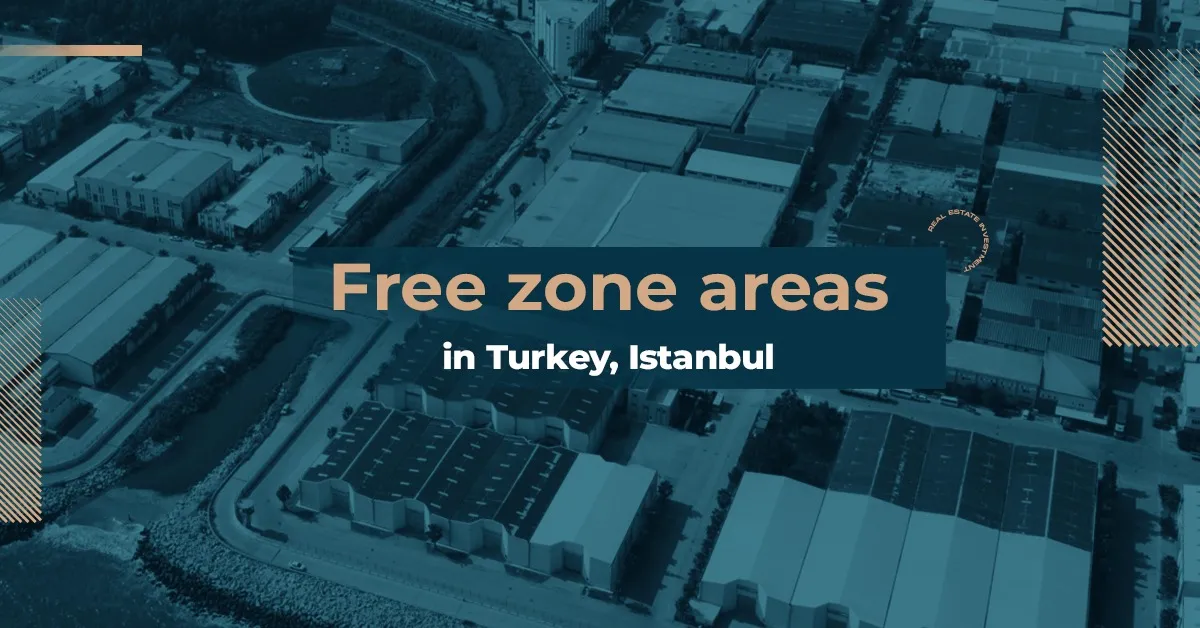
Table of Contents
-
Definition of Free Zones:
Free zones are designated areas within a country that are considered to be outside of its customs territory. These zones are enclosed spaces where special regulatory measures are in place to facilitate the operations of businesses, thereby promoting the export of goods and services. They offer a more favourable and adaptable business environment compared to other parts of the country, aiming to boost trade volume and exports for specific industrial and commercial activities. Since 1985, 18 free zones have been established with the goal of encouraging and expanding export-oriented investments and production.
-
Primary Objectives of Establishing Free Zones:
- Encouraging investment and production geared towards exports.
- Facilitating foreign direct investment and technology transfer.
- Steering enterprises towards export-oriented operations.
- Fostering international trade development.
-
Activities Permissible in Turkish Free Zones:
Turkish Free Zones allow a wide range of activities, including:
- Manufacturing
- Research and Development (R&D)
- Software development
- General trading
- Storage
- Packaging
- Banking and insurance services
- Assembly and disassembly
- Maintenance services
Investors have the freedom to construct their own facilities within these zones, while office spaces and warehouses are also available for rent with attractive terms. All activities open to Turkish companies are equally accessible to joint ventures involving foreign companies.
-
List Free Zones in Istanbul:
- The Istanbul Ataturk Free Zone: The Istanbul Ataturk Airport Free Zone is among the 18 operational free zones nationwide. Situated within Istanbul province, its location holds appeal due to its proximity to the city of Istanbul, a pivotal economic and commercial center.
Designed to cater to investor needs, the zone offers a multitude of facilities, including a variety of office spaces and warehouses, both private and general. It is well-suited for both fledgling start-ups and larger enterprises in Turkey seeking to leverage the tax advantages afforded by this special free zone.
To establish a free zone company in Istanbul, investors must select from a range of business activities, including manufacturing, trading, warehousing, assembly, disassembly, repair, maintenance, banking, insurance, and more.
- The Istanbul Leather Industry Free Zone: Another free zone of note is the Istanbul Leather Industry Free Zone, renowned as one of Turkey's largest special economic zones. Established in 1995, this zone permits the establishment of free zone companies across various industries including:
- IT
- Pharmaceutical
- Cosmetics
- Automotive
- Construction
- Machinery and equipment
- Furniture for residential and office spaces
- Textiles and garments
- Within the leather sector specifically, free zone companies can engage in the production of leather and leather products, as well as the manufacturing of chemicals and dyes.
- The Istanbul Stock Exchange Free Zone: which was created in 1997 and serves the purposes of financial institutions. Those interested in stock exchange listings can set up free zone companies in Istanbul in the special economic area with the same name. Companies here can operate in the commodities trading sector, however, they must also obtain the special licences for completing the activities of free zone company.
- The Istanbul Tracia (Thrace) Free Zone: Yet another significant special economic zone in Istanbul is the Thrace Free Zone, offering a range of activities that can be undertaken by establishing a free zone company here. Companies can be established in Turkey's Istanbul Thrace Free Zone across various sectors, including:
-
- Electrical and electronics
- Machinery and equipment production
- Textiles and fashion
- Gold metal processing
- Furniture production
- Food processing and exporting
- Engineering
- Financial services
- Trading
- Production of various light industry goods
Frequently asked questions
Free zones are designated areas within a country that are considered to be outside of its customs territory. These zones are enclosed spaces where special regulatory measures are in place to facilitate the operations of businesses, thereby promoting the export of goods and services. They offer a more favourable and adaptable business environment compared to other parts of the country, aiming to boost trade volume and exports for specific industrial and commercial activities. Since 1985, 18 free zones have been established with the goal of encouraging and expanding export-oriented investments and production.
The Istanbul Ataturk Airport Free Zone is among the 18 operational free zones nationwide. Situated within Istanbul province, its location holds appeal due to its proximity to the city of Istanbul, a pivotal economic and commercial center.
Designed to cater to investor needs, the zone offers a multitude of facilities, including a variety of office spaces and warehouses, both private and general. It is well-suited for both fledgling start-ups and larger enterprises in Turkey seeking to leverage the tax advantages afforded by this special free zone.
Istanbul, Antalya, Bodrum, and Izmir are among the best cities for real estate investment, thanks to their tourism and commercial growth and developed infrastructure.
You should seek the assistance of a lawyer specialized in real estate issues in Turkey to obtain legal advice and follow the appropriate legal procedures to resolve the dispute.
Yes, Turkish citizenship can be obtained by purchasing property or multiple properties with a total value of at least $400.000 USD, provided the properties are not sold for three years.








